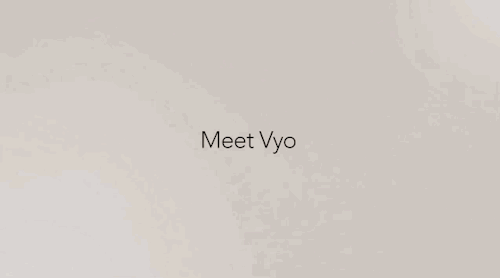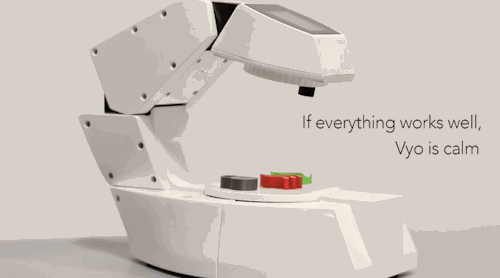Gaming, Science, History, Feminism, and all other manners of geekery. Also a lot of dance
243 posts
Latest Posts by stubborn-turtle-blog - Page 8
I'd never heard about this before
Islam is the toughest religion to leave because of the restrictions and consequences associated with leaving. I know there are a lot of people out there contemplating leaving Islam and are already feeling agnostic. My piece of advice to them would be to not come out publicly with your apostasy. You can leave Islam if it feels like the right move, but if you are afraid of the consequences, then keep a secret. There are many ex-Muslims on tumblr, such as myself, you can speak to anonymously if you just need help or someone to share your views with.

A striking example of the strength of the British Empire in the early 1900s: In 1911 Britain completed the “All Red Line,” a network of telegraphs that linked its possessions. The system was so redundant that an enemy would have had to cut 49 cables to isolate the United Kingdom, 15 to isolate Canada, or 5 to isolate South Africa. As a result, British communications remained uninterrupted throughout World War I.
The Indian Space Research Organisation (ISRO) just sent 20 satellites into orbit with one launch, marking the largest satellite launch in the space agency’s history.
Their previous record was 10 satellites delivered with one mission, and this latest accomplishment takes them a lot closer to the delivery rates of NASA and the Russian Federal Space Agency, solidifying India’s place in the global space market.
Out of the 20 satellites, 17 were commercial, so used by companies to help us do things like get better TV signals or weather forecasts. The main cargo, though, was the ISRO’s 725.5-kilogram (1,599-pound) Cartosat-2 - a satellite used for earth observation much like NASA’s Landsat program.
Continue Reading.
It's only coming out in German this weekend, but wow this looks cool.

"There’s a certain aesthetic attached to the oldest cities in the world: bustling souks beneath a bright blue sky, flowing garments made of whispery white cotton, stone masonry painted yellow by the sun."
The wood siding could age badly unless it's well-treated, but otherwise cool.
The wood siding could age badly unless it's well-treated, but otherwise cool.
Such a cool apartment, I like the mini-window between the bedroom and sitting area.

When astronomy honour’s student Michelle Kunimoto graduates on Monday, she’ll do so already holding the honour of being a galactic pioneer with distinction.
The 22-year-old University of British Columbia undergraduate has discovered four new planets in the Cygnus (Swan) constellation, known as “exoplanets” because they’re outside our solar system.
“I got interested in exoplanets from Star Trek,” she told Metro in an interview in UBC’s physics department. “The whole theme of Star Trek, curiosity and exploration, is really important for the long, long, long term. We want to answer the age-old question: Are we alone?”
She spent months poring through 400 different data samples from the Kepler space telescope, which captures the curves of light from distant stars. Sudden dips in their light can correspond to planets passing in front of them.
Kunimoto likened her method to trying to hear one quiet voice in a crowded room full of loud talkers. But when she first noticed the faint but tell-tale dip, she didn’t allow herself get excited.
“I had to be very careful,” she explained. “I ran them through a lot of tests, but the more tests I ran, the more confident I felt.
“When they all passed the right tests, and I had these four planets remaining, that was really exciting!”
The planet she’s most enthusiastic about is called Kepler Object Of Interest 408.05, which she nicknamed “Warm Neptune,” because it’s roughly the size of its namesake planet, but is within the distance needed for the warm, Earth-like atmosphere needed to host life. It’s 3,200 light years from Earth.
Technically, what she found are still considered “planet candidates” until they can be independently confirmed, but for her UBC supervisor the results are clear.
“It’s rare that you have that ‘Eureka!’ moment any more,” astronomy professor Jaymie Matthews told Metro proudly. “Michelle’s discovery was time-consuming, and she’s done this for only 400 out of 150,000 light curves.”
But will Kunimoto’s “Warm Neptune” — located within what Matthews dubbed the “Goldilocks” zone of planets that are neither too hot nor too cold to support life — potentially be home to intelligent life?
“You can bet that once the results are confirmed and more widely disseminated, the Search for Extraterrestrial Intelligence Institute will put KOI-408.05 on their list of higher-priority targets to monitor,” Matthews said. “If there is life and signals we could eavesdrop on, these are the places they’d be coming from.”
On Saturday, Kunimoto got a shout-out before a large UBC audience from Star Trek star William Shatner, who praised her discoveries on stage. “I was really honoured!” she said. “That was completely unexpected, my face was going red.”
“You fight like a girl.”
I’m sorry

I didn’t

realise

that

was

a

bad

thing

OMG, so pretty










Stunning Bionic Insects Built From Computer Circuit Boards
UK-based artist Julie Alice Chappell (previously featured here) constructs stunning sculptures of insects with parts of vintage computers and video game systems for her taxonomic collection, called “Computer Component Bugs”. Using parts of Nintendo’s and DVD players, Chappell hopes to raise awareness of environmental waste.
Chappell’s goal is to create an aesthetically beautiful creation, which also offers a socio-political discourse on the reclaimed waste and the destruction of the natural world with art. Chappell’s bionic insects can be found on Etsy shop!
View similar posts here!
In the end, however, the best safeguard was flight; or, as a late fifteenth-century German manuscript put it: ‘Clever doctors have three golden rules to keep us safe from pestilence: get out quickly, go a long way away and don’t be in a hurry to come back’.
from The Black Death by Philip Ziegler (via historical-nonfiction)
Still true
At what point did Britain and France stop always being on the brink of war with each other?
He [Wilhelm II] returned to Europe [from his tour of the Holy Land] in autumn to find Britain on the point of war with France over a solitary little fort in the middle of nowhere in southern Sudan called Fashoda. Fashoda was the point where French plans to dominate Africa east to west, from Dakar to Djibouti, intersected with British plans to connect South Africa to Cairo.
A French troop occupied the fort; a British one sat outside it – very politely. The two commanders took tea together.
The quote is taken from George, Nicholas and Wilhelm: Three Royal Cousins and the Road to World War I by Miranda Carter.
I’ll be honest, my dream is to be a medical officer for a space company/organization







Seven Vehicles That Will Carry Humanity Into Orbit and Beyond Very Soon
The human race is quickly becoming a spacefaring civilization. During the Cold War, aggression and technological rivalry between two superpowers led to humanity’s first journey into space and to those first footsteps on the Moon. Today, exploration is driven by competition in the commercial space industry.
Private companies like SpaceX, Boeing, and Sierra Nevada Corp are already signed up to carry cargo to the International Space Station. Later, they’ll also build and fly their own human-capable spacecraft, while NASA itself focuses on building a vehicle that will eventually take humans to Mars. Read more about each spacecraft.
They are (from top to bottom):
1.) NASA’s Orion Spacecraft
First crewed launch 2021-2023
2.) SpaceX’s Crew Dragon
First crewed flight 2017
3.) Boeing’s CST-100 Starliner
First Crewed Flight: 2018
4.) Sierra Nevada’s Dream Chaser
First flight: 2019
5.) Blue Origin’s New Shepard
First Crewed Flight: 2018
6.) World View Capsule
First Crewed Launch: 2017
7.) Virgin Galactic’s SpaceShipTwo
Launch date: Unknown
Where is this, and what’s up with the white-washed parts of the towers?

Spring Mornings // Johannes Hoehn





Cutler Anderson Architects. Newberg Residence. Bellevue. Washington. USA. photos: Cutler Anderson Architect - Beautiful family residence & guesthouse with a strong connection to the living world.
Prepare for field research mayhem






Things I Learned as a Field Biologist #584
Going back to the field after a long hiatus can lead to moments of both visible excitement and stupefaction (with a slight register of anticipated grossness). Like my face, above. In South Africa. Where I will be once again in less than 48 hours! TO SEE ALL OF THE ANIMALS (but mostly the monkeys)!
Yes: after an absence of three long years, I leave for the field tomorrow!
This summer, I’m very excited to be returning to South Africa to work with vervet monkeys (Chlorocebus pygerythrus), using a number of methods to get at how they forage, what they eat, and ultimately how their bodies adapt to their nutritional environments in three places I’ve been before and loved working in: Soetdoring Nature Reserve, Gariep Dam, and Shamwari Game Reserve. Some of this work will involve live trapping and release, so to ensure to welfare and health of the monkeys I’ll be doing this work in collaboration with the wonderful Dr. Adrian Tordiffe of the University of Pretoria Faculty of Veterinary Sciences.
I’m also taking two of my BU undergrads with me for their very first field experience! Also making his South African and primatological fieldwork debut: my dad (in a supporting role: aka building monkey traps)! And, of course, my most wonderful postdoc, Maryjka Blaszczyk (this ain’t her first rodeo by a long shot).
AND THAT’S NOT ALL: I’ll also be teaching a group of students all about fieldwork and Primate Conservation Genetics in my field course with the prolific Dr. Trudy Turner of the University of Wisconsin in Milwaukee.
As you can see, it will be a packed summer, so I’ll be checking in more regularly to share all the new excitement (and yes, most likely a fair share of humorous mishaps and parasites) that a new field season in South Africa will bring. I’ll also be posting on Twitter and Instagram (@fuzzyatelin, #BUvervets16, #BlueScrotumSummer).
But as I hope you already know: I always save the juicy stories for right here…
AT-ATs went native...and domestic





Baumraum. Bachstelze. Eberschwang. Austria. photos: Alasdair Jardine

Computer Room Not Found
New on my Skyrim to do list...

Gotta love that Bethesda programming.
Not a fan of the color scheme, but those chandeliers have such an awesome structure








Inspiration: Black Living Room
prayer circle for elder scrolls 6


Now we know the (proposed) names of the four new elements, here’s an updated graphic with more information on each! High-res image/PDF: http://wp.me/p4aPLT-1Eg
Less pollution and lighter, more efficient bricks? Yes, please






Archstudio. Alley Teahouses- Qulang Hospital. Beijing. China. photos: Archstudio







